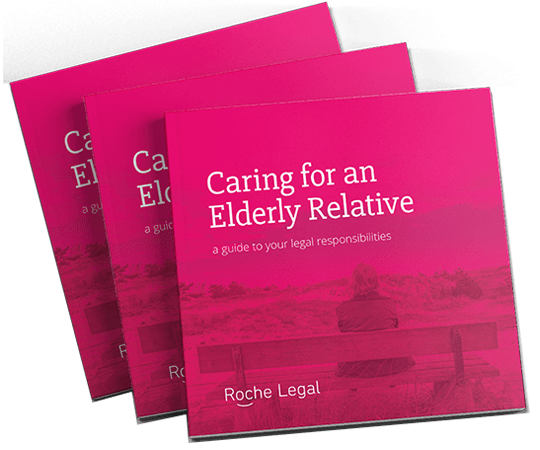A ‘next of kin’ is a traditional term which typically refers to a person’s closest relative.
There’s a lot of confusion around the term as it’s generally thought to hold more legal standing than it does. Many people believe that their next of kin can automatically take on legal rights and responsibilities on their behalf, but this is not the case.
In fact, the only situation where someone’s next of kin automatically has the legal right to make decisions on their behalf is when the person is under 18 and their next of kin is their parent or legal guardian.
Who is the next of kin?
Again, next of kin has no real legal definition and the term is often used in place of ‘emergency contact’. If you’re asked to name a next of kin, such as when going into hospital, you can choose whoever you want. You would have no legal obligation to put a blood relative rather than a close friend, for example.
However, generally speaking, a next of kin is usually understood to be a person’s closest relative. The order usually goes:
- A husband, wife or civil partner. Unmarried partners are sometimes included here, but not always.
- An adult child. Adopted children would be included here, but step-children might not be.
- A parent
- A sibling

Download our handy guide
Everything you need to know about the legal and financial responsibilities of caring for a loved one who is no longer able to look after themselves.
Next of kin in hospital
In some situations, a person’s next of kin might need to be identified without input from the person themselves. This can happen when someone is temporarily unable to comment, for example after being suddenly taken ill or having an accident.
When this happens, hospital staff usually identify their next of kin. This may be someone listed as an emergency contact on medical records, or it may be determined by following the priority list above. If someone has not listed their unmarried partner as their next of kin on their medical record, the hospital may consider a blood relative to be the next of kin instead.
When someone is seriously ill in hospital and unable to communicate themselves, hospital staff will keep their next of kin up to date on their progress. The next of kin may also be asked for their thoughts on what the person’s wishes might have been about their care.
However, the next of kin has no specific legal rights and would not have the right to make decisions about health and care. If someone wanted their next of kin to have the right to make these types of decisions on their behalf, they would need to formally bestow these rights with a power of attorney. In cases where this was not possible, a next of kin would have to apply to the Court of Protection to be appointed as a deputy.
Next of kin after a death
It might be necessary to determine someone’s next of kin if they were to die without leaving a valid Will. Without any named executors, a next of kin would be responsible for registering the death, organising the funeral and applying for a Grant of Administration in order to be able to administer the estate.
In these situations, the next of kin would usually be determined by the intestacy laws and whoever would be legally considered entitled to inherit the bulk of the person’s estate. In these situations, unmarried partners and/or step-children (unless legally adopted) would not be eligible to act as next of kin.
Can you change your next of kin?
Not everyone has a straight-forward relationship with close family members. It may be the case that you wouldn’t want the people who would traditionally be seen as your next of kin to be by your side in hospital or take charge of your estate in the event of your death. Alternatively, you may prefer that an unmarried partner would take on this role rather than a parent or sibling.
There’s a simple way to prepare for this. Putting legal documentation in place such as a Lasting Power of Attorney (LPA) and a Will ensures your wishes will be followed. These documents allow you to name specific people to manage your affairs on your behalf.
Of course, even if you’re happy with the person who would be considered your next of kin, that doesn’t necessarily mean you don’t need to take any action. After all, your next of kin doesn’t have any legal right to act on your behalf should you need them to.
If you would like the person closest to you to be able to make decisions on your behalf in the event of an accident, illness or even death, it’s vital to make sure you have the proper legal documents in place well before you need them.
How Roche Legal can help
We are reassuring experts who can help you with a wide range of legal matters. Please get in touch if you need legal support with:
- Trusts and Estate Planning
- Wills
- Probate and Estate Administration
- Contested Probate and Will Disputes
- Powers of Attorney
- Court of Protection matters
- Presumption of Death Applications
- Missing Persons Guardianship Applications
Need further help?
If you would like guidance about any aspect of appointing a next of kin, or if you have been appointed as next of kin for somebody else, please do not hesitate to get in touch with us.


